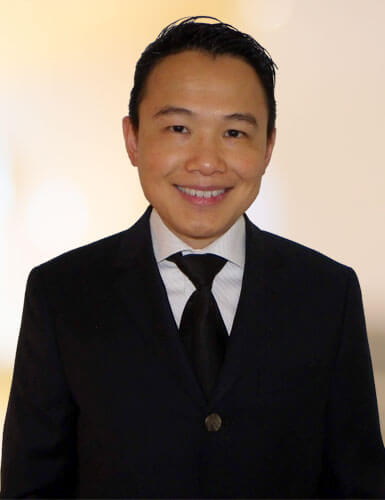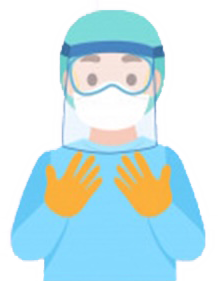The Care and Keeping of Teeth During Every Stage of Life
Posted: August 25, 2020
Last Modified: June 6, 2022

As any good family dentist will tell you, looking after your teeth is a constant process. It’s not just your standard “Brush twice a day” message, either. Your teeth require specific types of care as you age, starting as early as infancy and continuing for the remainder of your life. It’s why, when you go to a dentist, the youngest member of the family will have a different type of assessment than the oldest member.
It’s never too late to begin caring for your teeth, but the earlier you start, the better. Today, we thought it’d be useful to post a guide as to what you should be doing to care for your teeth during your various stages of life. Do bear in mind that this is meant only as a handy reference, rather than an answer-all authority. If you have any questions pertaining to your teeth in particular, your best resource is always your Barrie family dentist.
Infancy & Early Childhood
The first set of teeth a person owns – their baby teeth – fall out and are replaced by adult teeth around the time they reach 12-14 years of age. Until then, caring for this first set is just as important. Unfortunately, many individuals assume that since this first set of teeth is temporary, care can be neglected or ignored. These 20 baby teeth are responsible not only for allowing a person to eat, talk, and smile, but they also act as placeholders for adult teeth. If they decay or fall out prematurely, adult teeth could come in crookedly or in the wrong place altogether. Children need to brush their teeth twice every day, and you may need to remind them that toothpaste shouldn’t be swallowed.
What to Do for Teeth at This Age
- Visit your Barrie family dentist as soon as the first tooth appears (and no later than the child’s first year of age).
- As soon as your child has two teeth next to each other, begin brushing their teeth daily. Get them in the habit of brushing for at least two minutes each time. There are some toothbrushes with musical timers that can help children tell how long they’ve brushed.
- Make sure your child eats plenty of fruits and vegetables – these provide essential nutrients for growing youngsters, but they also help strengthen teeth.
- Avoid providing sweets outside of mealtimes, since the saliva produced while eating will help wash away sugar and make it harder for decay to set in.
The Teenage Years
As children age into teenagers, tooth care becomes more substantial, especially since this is the period of time in which most individuals will acquire their adult teeth. This is the time when summers are full of pop and ice cream and the fall and spring are spent playing sports. Teeth are subjected to many more factors than they might have been up to this point, which means it’s even more important to develop the good habits that will protect teeth from here on out.
Flossing needs to be consistently added to daily brushing, and trips to your family dentist should be scheduled every six months for check-ups and monitoring. As adult teeth arrive, teenagers may require braces to help align their teeth properly. Occasionally, the teeth in the back of your mouth – called the wisdom teeth, or the third molars – may grow in crooked, or may not leave enough room for the rest of the teeth in your mouth. In this case, the teeth may need to be removed.
What to Do for Your Teeth
- Develop good hygiene habits, such as brushing and flossing every day and seeing your Barrie family dentist regularly.
- Wear appropriate protection, such as a rubber mouthguard, when playing sports.
- Avoid drinking or eating sugary foods outside of meals (and yes, that includes energy drinks).
- If your dentist recommends something to help protect your teeth or improve their function, like dental sealants or braces, follow their guidance.
Early Adulthood
As an adult, all the good habits that were (hopefully) developed in adolescence can now be carried forward throughout life. Maintaining a good diet and regular brushing and flossing of your teeth go a long way to helping prevent the development of cavities or tooth decay. Do bear in mind that life changes, such as pregnancy or periods of prolonged stress, can impact your teeth in different ways. If you notice something different, such as an odour or unexplained pain or bleeding, be sure to contact your dentist right away. If you’re interested in cosmetic improvements like tooth whitening or adult braces, your dentist will be able to help you here, too.
What to Do for Your Teeth
- Continue to practice good dental hygiene in your home.
- Avoid whitening your teeth at home with over-the-counter solutions, as these could accidentally cause damage to other aspects of your overall oral health. Consult your dentist first.
- See your dentist regularly (at least once every six months). Tooth decay can be subtle, and if you wait until you notice pain, it may be too late to save the tooth in question.
- If you develop medical issues, such as diabetes, or are currently undergoing medical treatment, let your dentist know so they can monitor your oral health for any changes.
Later Adulthood
After around 40 years of age, the body begins going through several changes. These can include dry mouth, higher risks of oral disease, and, since teeth have now been used for several decades, the need for restorative or repair work. You may also notice that your teeth are now more sensitive to temperature changes, such as hot or cold drinks. This can be treated but, as with the aforementioned concerns, you’ll need to first alert your dentist to the problem.
What to Do for Your Teeth
- If you develop dry mouth, be sure to let your dentist know so they can take proactive steps to help protect your teeth. You’ll also want to drink plenty of water to keep your mouth hydrated and help wash away any food particles that remain after meals.
- If you have a missing tooth or teeth, ask your dentist about your options for replacement. A single missing tooth can impact how you eat and speak, which can cause further jaw pain or injury if left untreated.
Senior Years
For adults aged 60 years or older, oral health is frequently influenced by medication, a decline in dexterity that can make brushing a challenge, or lifestyle changes. All of these factors can impact your oral health in different ways, which makes it especially important to maintain your good dental habits. You may have dentures or bridges to consider, which need to be treated with the same care and attention as your teeth. Good nutrition now is just as important as it was at a younger age, so make sure your plate includes plenty of fruits, vegetables, and lean proteins.
What to Do for Your Teeth
- If you have dentures or other restorative dental work, be sure to clean them daily to prevent the buildup of plaque and reduce the chances of trapping debris.
- Continue to brush and floss daily, and maintain regular visits to your dentist, as they’ll be able to help you monitor your oral health.
Lifelong Care From Your Barrie Family Dentist
Your teeth can last you a lifetime if you look after them, which is why providing the right care and cleaning as early as possible is so important. At Dr. Elston Wong Dentistry, we’ve treated clients of all ages and from many different walks of life, and we’re dedicated to finding the right treatment for you. We’ll explain our procedures step-by-step or, if you’d rather not be aware of the process, produce a calming and pain-free environment for your visit.
If you’d like more information as to why Elston Wong is an excellent choice for your Barrie family dentist, give us a call at (705) 721-1143. You can also contact us online, either through our website or by instant chat.


